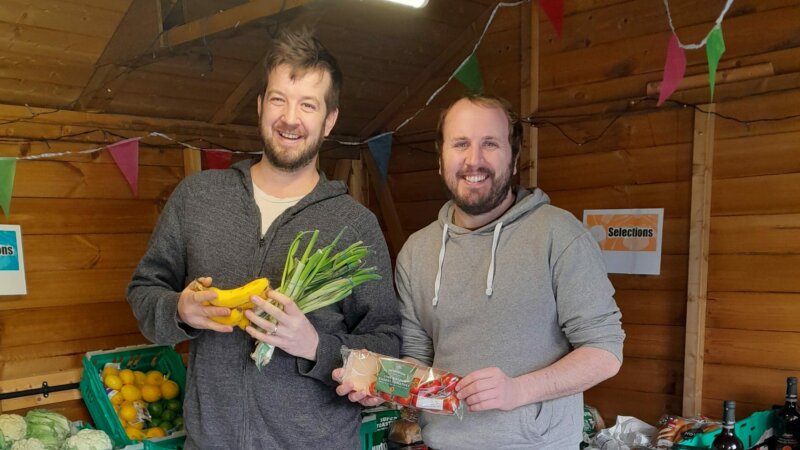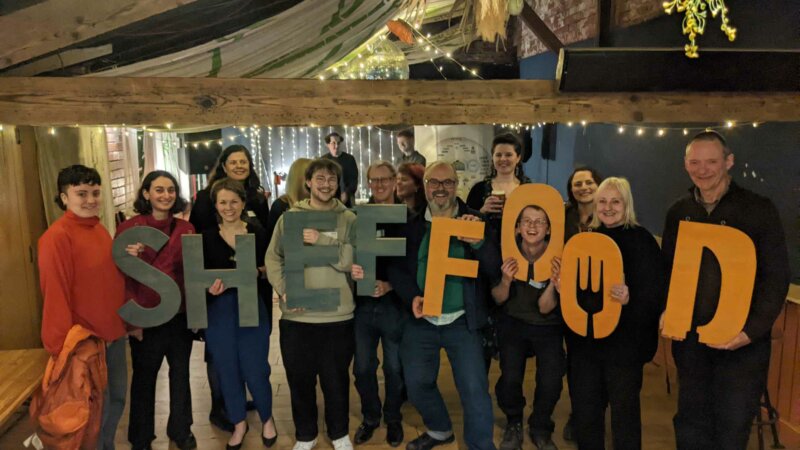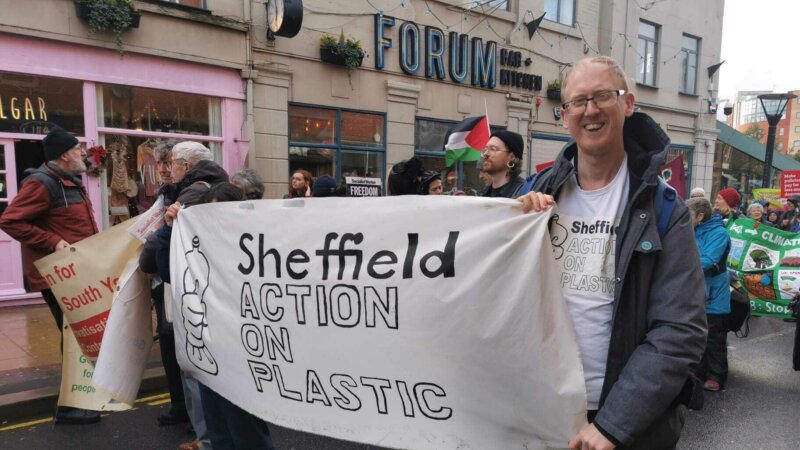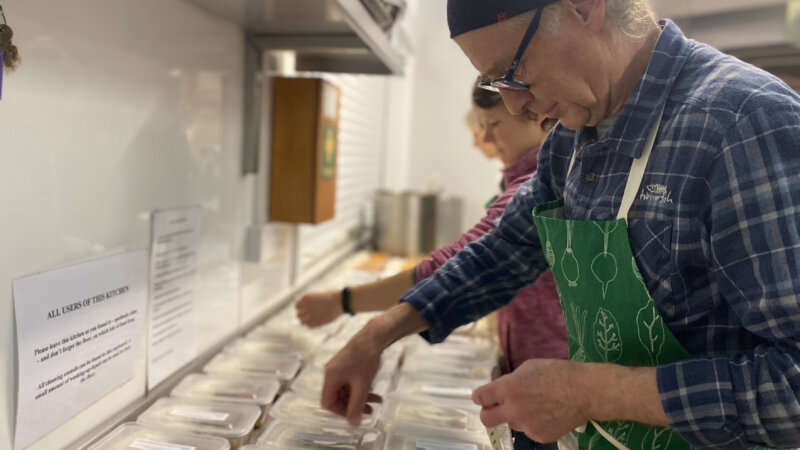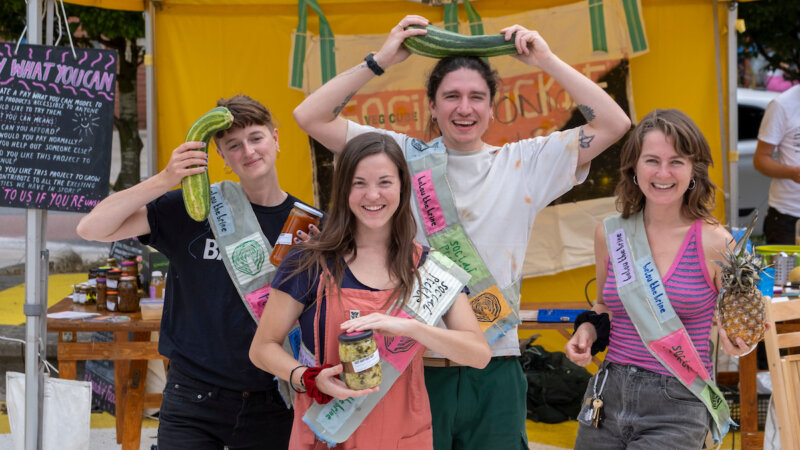"We achieved so much with Foodhall and we wanted to capture our lessons learnt"
The launch event for the collective's Leftovers report will be a celebration of the power of community change, with takeaways to help shape the future of food in Sheffield and beyond.
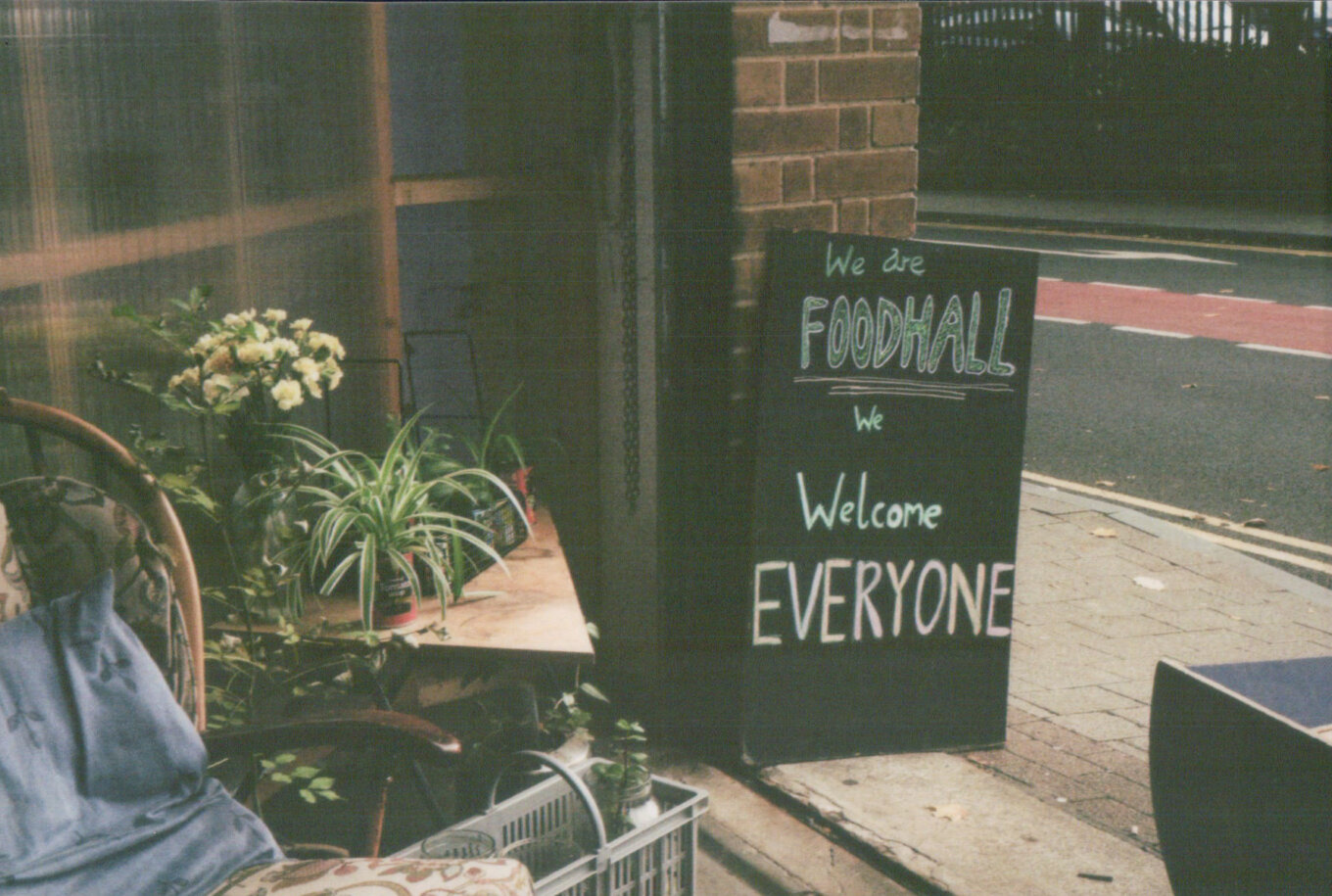
Beginning in 2015, Foodhall was a community kitchen and DIY arts space in the centre of Sheffield, run by a collective focused on tackling the joint and combined issues of food insecurity, food poverty, social isolation and food waste.
The group ran food-themed community events where most of the meals were made with surplus ingredients – food was prepared together and people would eat together – alongside film screenings, gigs and exhibitions.
During Covid, Foodhall pivoted to food delivery, supporting
households around the city to access fresh veg, cupboard essentials and
frozen meals with no means testing. 23,000 meals were delivered in the
first four months of the pandemic, reaching more than 13,500 people in
6,500 households.
These were some of the many elements which evolved over the eight years of the project. Foodhall sadly closed it doors in January 2023.
The Leftovers report, written by a small group of the Foodhall community, has brought together some of the lessons learnt from running the project, in the belief that they can be used by similar community organisations in Sheffield and beyond to help facilitate change in food systems.
We chatted to Emmott Baddeley, a member of the Foodhall community who contributed to the report, about the Leftovers launch event on 17 February to find out how sharing the learning can help others make a real difference.
Why did you decide to compile the Leftovers report?
The report came from some of us who were involved with the Foodhall, because we wanted to celebrate what we did, share what we learnt from it and not lose that.
It is not rare for community projects to close, as it is a hard world in terms of keeping things like this going. It is important you learn from it and it becomes more than that one project. We wanted to have a celebration element about what we did and ensure that just because Foodhall closed, it wasn’t a failure. It was fantastic.
We wanted to write it so if you are another community organisation who are trying to do similar stuff, you could pick it up and find takeaways that apply to your work.
What are the headline themes?
There are two broad themes which are power and structure, and funding.
We have distilled lessons around funding and how potentially we could have worked differently with funders, who is involved and how they are involved.
The report is shaped by our perspectives and a process we did back in April 2023, where we facilitated a debrief with people who had been involved organisationally with Foodhall over eight years of the project. This helped us to pull out lessons from people which have shaped the report.
How would you like the report to lead to future change?
People who were involved with Foodhall are now working in
other areas of food provision within the city – for example, [at] the council,
Food Works and various other
organisations. There are people in Bristol, Glasgow and Brighton who
were involved initially and then have gone on to do similar work across
the UK.
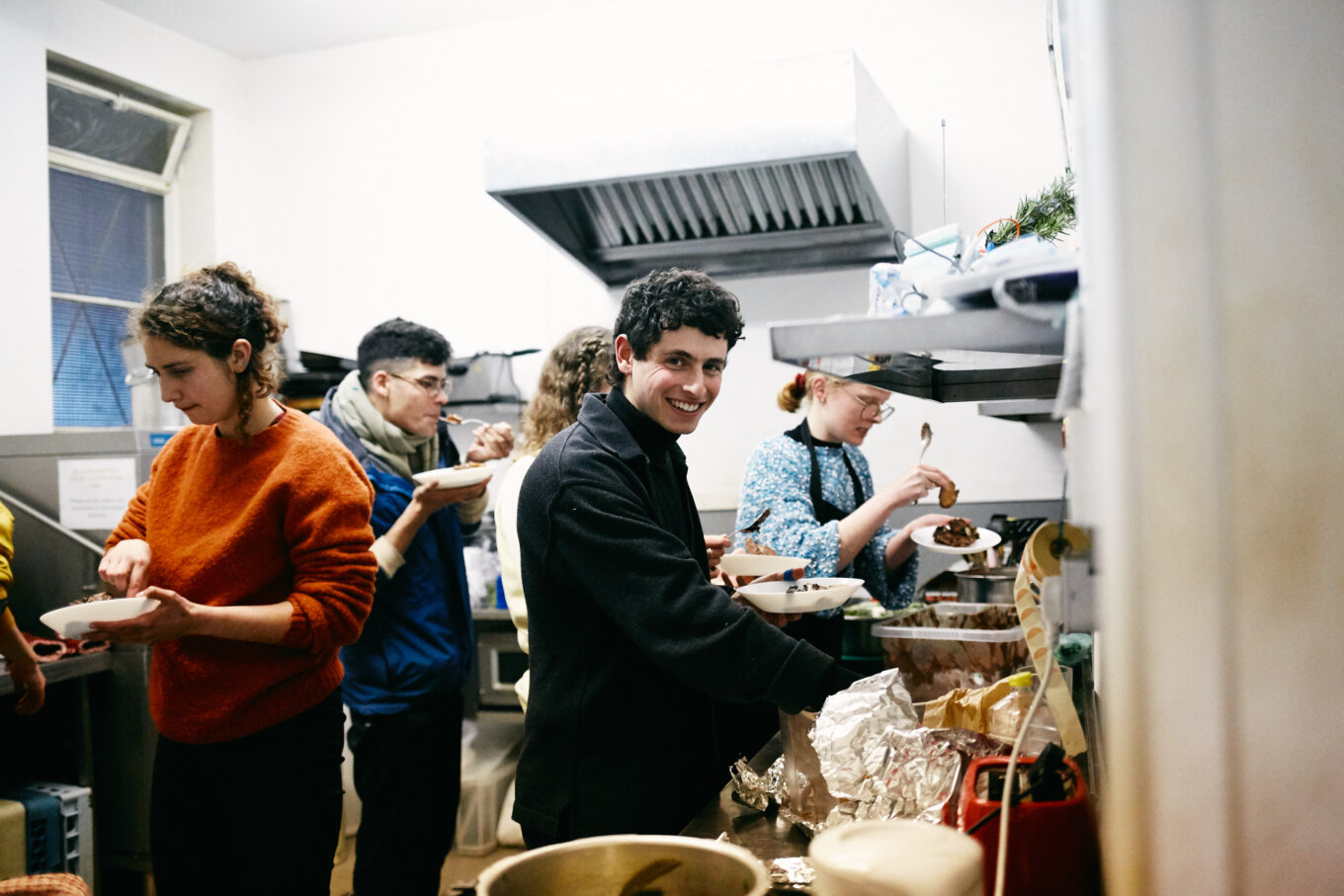
We would like to see change continue. Foodhall had elements of DIY and subversiveness. It was never going to be supported by mainstream organisations, like the council or funders, to do the work in exactly the way we wanted. One of the main lessons would be to try to maintain cohesion and a shared vision, whilst trying to get as much from external support agencies as you can.
Of course it would be great to get more support from councils and funders, but it's important to acknowledge that it will always be limited for people doing this kind of work. So we want people doing this kind of work to feel strong in their convictions, and what we have tried to do with this report is to support this community that has to be more self-sufficient.
It would be great to see something like a Foodhall happening in the city in the future, but who knows what that might look like or when that might happen. In the meantime there are distributed elements of things that once contributed to Foodhall that still continue, like Social Pickle, the Food Squad group, who do meals on Friday at Theatre Deli, and Sheffield Food Chain.
In Sheffield and beyond, people need to keep fighting for these sorts of spaces. It is an active battle to keep them open and to come together to do more.
What can people expect from the Leftovers launch event?
Everyone who was involved in Foodhall over the years, or who would like to learn from our work, is welcome. You can just turn up. It will be informal and hopefully feel like a Foodhall cafe day. There will be food and everyone will get a copy of our report.
You can contribute something to the space and get involved in activities going on. There will be ways to reflect on experiences, however you might have been involved in the Foodhall.
It is really important to share our strong feelings, share
the loss but also share the celebration of what we did achieve – and for
that to become part of a much wider web of what is happening.



